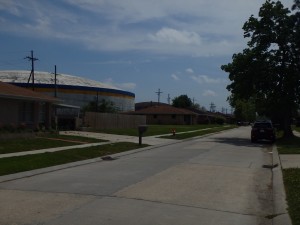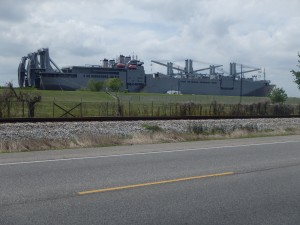buy modafinil south africa  I was curious to see Chalmette. I remember one time I was speaking with a woman in New York who said she was from New Orleans. “New Orleans!” I said. “What part?” She paused a bit and then said, “Just outside New Orleans, actually. You probably wouldn’t know it.” “I might,” I said. “I know more than I seem to.” She said, “I’m from Chalmette.” “CHALMETTE!” I said. “YOU’RE A CHALMATIAN!” She blushed, and I guess it wasn’t too nice of me to push her; if she wanted to be from New Orleans, she could just be from New Orleans. But honesty is one of the indispensable things, and accuracy with it; I’m from Queens, which is only the same as being from New York City if you are talking to someone who has spent less than a week there. I don’t shy away from the fact and I think it’s important I don’t.
I was curious to see Chalmette. I remember one time I was speaking with a woman in New York who said she was from New Orleans. “New Orleans!” I said. “What part?” She paused a bit and then said, “Just outside New Orleans, actually. You probably wouldn’t know it.” “I might,” I said. “I know more than I seem to.” She said, “I’m from Chalmette.” “CHALMETTE!” I said. “YOU’RE A CHALMATIAN!” She blushed, and I guess it wasn’t too nice of me to push her; if she wanted to be from New Orleans, she could just be from New Orleans. But honesty is one of the indispensable things, and accuracy with it; I’m from Queens, which is only the same as being from New York City if you are talking to someone who has spent less than a week there. I don’t shy away from the fact and I think it’s important I don’t.
best place to purchase Clomiphene Embarrassment is one of the great indicators of personality, and I was pretty interested to find out what about Chalmette could make someone not want to be from there. I liked it because its people were so forceful and interesting; but I had to admit that visually it was ugly. Many of the things people think of as being New Jersey, or Staten Island – suburban wasteland with toxic waste dump in the background – was closer to true in Chalmette than anyplace I had seen. There were big oil tanks sitting behind suburban homes; a refinery spitting out dirty air; you could see massive ocean vessels moving up the river in the background along the main drag. The industrial scale was entirely out of proportion with the simple suburban life there. I think this fact would make me feel powerless – what difference does it make if I don’t smoke if I have to breathe fumes from the refinery anyway? What difference if I clean up the sidewalk in front of my house if there is going to be a gravelyard at the foot of the road anyway?
I believe this is one of the psychological effects of American industrial life generally: personal life seems to vanish like a drop into the ocean of the vast forces of our society. What difference do our personal decisions make against this backdrop? I try to be environmentally conscious; but the real damage is done by industry anyway. I try to be ethical; but the real problems are in vast corporations. I believe in freedom and letting people live; but my government has its hand in the governments of two hundred other countries around the world. And yet all of these larger forces are made up of, and in many ways serve, the small personal decisions we make.
Other things though, are quite simply out of our control. The area east of New Orleans contains much low ground; the Lower Ninth Ward is near Chalmette. There were abandoned houses and churches and businesses, and the big boats going by made it painfully clear just how much higher the water in the river was than the land it flowed by. But there is always some element of human responsibility: Chalmette is an old town, built on a small bit of reasonably high ground. What it cannot afford – as New Orleans too cannot afford it – is to spread itself out like a suburb from border to border. Instead it probably could have been – and probably should be – heavily and densely developed on the high ground, and low ground left to uses that can flood without great loss.

Post a Comment